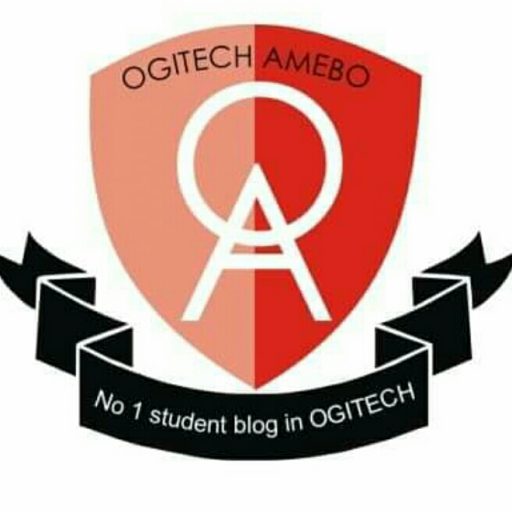United Kingdom’s Department for International Development (DFID) has adjudged Briidge International Academies, Nigeria, best in education regardless of a child’s socio-economic background. Bridge is a partnership with families, government and donors to provide life-changing, affordable education to low income families in underserved communities. The new report dubbed Learning in Lagos shows that factors such as parental income, education and language had no effect on Bridge pupils’ academic performance.
The study confirms that Bridge pupils in Lagos are demonstrating higher achievement than their peers in other low-fee schools or public schools. The report says, “In literacy, students at Bridge schools perform better than pupils at other private schools (by 0.35 standard deviation) and public schools (by 1.38 standard deviation)”.During launching of the report in Lagos, Dr Steve Cantrell, VP of Measurement and Evaluation at Bridge said,”There is no learning gap at Bridge schools. This study validates our methods, which ensure that all teachers have high expectations for every pupil, irrespective of their families income, prior educational attainment, or which language they speak at home.”
Cantrell added that, “Bridge schools are places of equal opportunity and equal learning benefits for all types of children and especially for the poor. Overall, this independent report shows that Bridge is helping children from poor families in Lagos to learn, improving access to quality education and providing the best overall learning attainment in the local communities we serve. We can now say with total confidence that Bridge makes a significant and important overall contribution to education opportunities in Lagos.”

Key highlights from the report indicate that at Bridge Schools Nigeria, a child’s family background has no impact on their attainment in class as Bridge pupils know more than their peers. Majority of children in Bridge schools are from poor families and Bridge teachers have the best relationships with their pupils. Bridge community schools are managed more effectively. DFID findings contradict decades of global education research that asserts family background matters more than the school a child attends, in relation to levels of learning. According to the report :“Students from better socio-economic backgrounds have higher learning achievement in private schools, but not at Bridge schools”.
Dissolve my marriage, my husband beats me before sex, woman tells court
On her part, Alina Lipcan, Education Consultant at Oxford Policy Management and author of the report said: “This is the first time we have measured school management in Nigeria. We are able to support a claim that all those working in organisations have long held true: good management matters. In Lagos public schools and Bridge schools, we find a strong correlation with better learning outcomes. As a next step, we would recommend more programmes focused on better management, so that more schools and pupils in Lagos can benefit.”
The report marks an important milestone in the debate around Bridge’s role in helping poor families access quality education. The UK government now fully recognises that “the private sector, as well as the public sector, contribute to the education of Lagos children and that development partners need to work with the private sector as well as the public sector to improve education outcomes for children in Lagos. All hands must be on deck to help the approximately 10 million Nigerian children not in school and many who are in school but are not learning the basics”.
Meanwhile, Olu Babalola, Managing Director of Bridge Nigeria, opined that Bridge pupils excel, because of the training and support teachers receive at Bridge. “Bridge teachers pay attention to struggling kids and not just those doing well. I think in other schools, the tendency is for the smart kids to dominate in class, because they are more likely to jump to answer a question. I believe that our cold-calling methods, the small group sessions, the check and respond methods and everything we coach the teachers to do ensures no child is left behind.”
DFID recognises that 69% of children attending low cost schools are living below the poverty line and that Bridge makes an important contribution to the overall provision of quality schools in an area where 75,000 children are out of school.The report also confirms that the vast majority of those in low cost community schools are poor. “69% of those attending low-cost private schools can be classified as poor.” The report highlights the quality of Bridge teachers, saying, “Teachers in Bridge schools report higher motivation than teachers in other schools and Bridge schools are better managed than other schools.” Teachers in Bridge schools empower their pupils and build strong supportive bonds. The report found that Bridge pupils were less likely to “hit, pinch, or slap” another pupil during a lesson (5%) than in private or public schools (both 31%).
In addition to running community schools in Lagos and Osun states, Bridge also supports Nigerian government schools in Borno and Edo states. In her remarks, Director-General, Office of Education Quality Assurance, Lagos State Ministry of Education, Mrs Ronke Soyombo lauded Bridge International Academies and the launch of DFID’s Edoren Reports on the school.She said: ”It’s high time private educational system and the public school system in Lagos State rose to the occasion by exploiting these brilliant minds to full capacity.
Source: https://www.vanguardngr.com/2018/10/dfid-rates-bridge-nigeria-schools-best-in-education/


